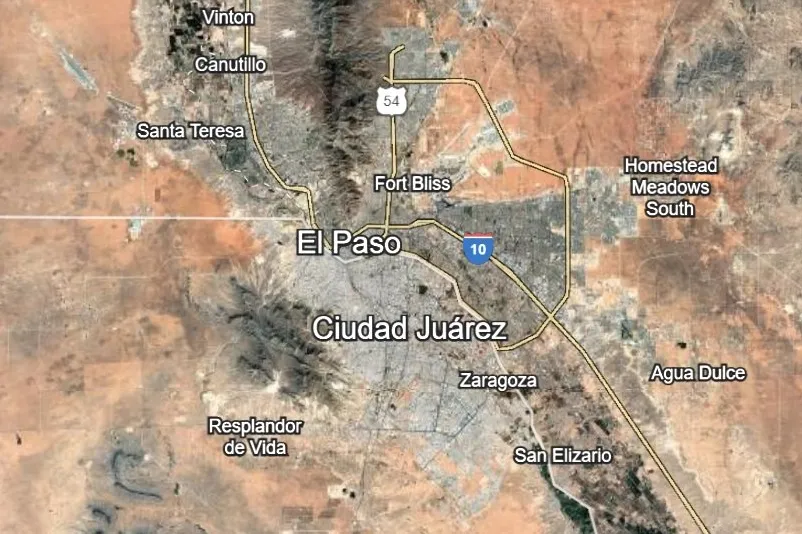Borderline case: key US wind supplier gets ready for Trump's tariffs
TPI Composites' US customers are asking for 'all the volume they can get' out of its Mexico plants – but its blades could be facing a 25% tariff

Wind turbine blade manufacturer TPI Composites has contingency plans in place should US President Donald Trump follow through on this threat to slap tariffs on Canada and Mexico in March, according to CEO Bill Siwek.
“Given the uncertainty potential tariffs may bring to the market, we will closely monitor new developments and continue our contingency planning with our customers,” he said on an earnings call Thursday.
“When and if they come into play, we will have alternatives there, and we will look at options with our customers,” he added. Options include considering whether to accelerate deliveries.
TPI, based in the US state of Arizona, is the leading independent onshore turbine blade supplier for western OEMs. Its production facilities in Juarez, Mexico, just across the border from El Paso, Texas, are among the largest in North America.
It is a key supplier for GE Vernova, the top OEM in the US onshore market, the second largest for wind after China.
Last year, TPI restarted four production lines at one of its Juarez facilities to produce GE Vernova's heavier, longer, and more expensive "workhorse" turbine blade. Another plant there manufacturers lighter, shorter blades for the OEM, which has been a TPI customer since 2008..
Siwek said demand is robust from the US as TPI fills orders placed in 2023 and last year as developers rushed to start construction of projects that locked in an option to claim lucrative federal tax credits under the 2024 tax code. At the start of this year, tax credits moved to technology-neutral tax code sections.
The prevailing legal view in the industry is that Trump cannot deny tax credits to an eligible project by executive order. It is unclear if his administration would seek to challenge this position in court.
“Our customers are asking for all the volume we can get out of our Mexico factories for the US market in 2025. So, we have responded by ramping up production lines in Mexico to support 24/7 operations,” he said. Part of US demand is also coming from turbine repowerings.
TPI has invested $2m in additional resources to enable a 24/7 schedule in Juarez to support its customers’ demand in the US market this year and beyond.
When asked who is bearing the risk associated with potential tariffs, Siwek said most of is driven by the “standard Incoterms” in the company’s contracts or purchase orders.
Incoterms, or international commercial terms, are published by the International Chamber of Commerce to facilitate global commerce. Incoterms prevent confusion in foreign trade contracts by clarifying obligations of buyers and sellers.
“In some cases, we are ex-works, which means as soon as we complete the blade and roll it out the doors of the factory, it becomes the responsibility of our customers,” he said. “That’s the case with our contracts… our customers today are responsible for tariffs and border taxes, if you will.”
In November, Siwek told analysts that the tariff would, "generally," be included in the product cost.
TPI calculates that the overall cost of a blade is about 17% of the entire turbine as well as balance of plant.
“Even if it was a 25% tariff and again, I’m not downplaying the impact, it’s about a 3% to 4% impact on overall cost,” said Siwek.
Trump on Monday told reporters his tariffs are starting next month, although he did not give a date. “We’re on time with the tariffs, and it seems like that’s moving along very rapidly,” he said.
Trump on 3 February agreed to a 30-day pause on this tariff threats against America’s two largest trading partners after they made initial moves to address his border security and drug trafficking concerns.
The move pulled the three nations back from the brink of a trade war that clean energy executives fear could depress regional economic growth, disrupt supply chains, and rekindle inflation, leaving wind and solar less cost competitive against fossil fuels.
Now, it seems, Trump is determined to slap 25% tariffs on imports from Canada and Mexico. The exception would be a 10% tariff on Canadian electricity, natural gas, and oil.
Siwek assured analysts that TPI has sufficient liquidity to “weather the storm” in the US wind market with the “right level of leverage” relative to its earnings before interest, taxes, depreciation, and amortisation, and free cash flow generation.
He and his senior leadership team are working with TPI’s board and external advisers to “evaluate options to optimise our capital structure for the current environment. While definitive plans have not yet been finalised, this remains a priority,” he said.
(Copyright)